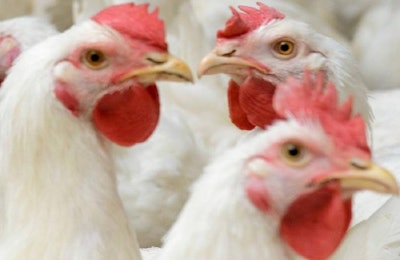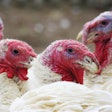
The U.S. Department of Agriculture has proposed rules affecting poultry growers that, according to the National Chicken Council and others, could strangle poultry and livestock producers.
On December 14, the USDA’s Grain Inspection, Packers and Stockyards Administration (GIPSA) released what it called the Farmer Fair Practices Rules. The two proposed rules affect undue preference and the poultry grower ranking system. An interim final rule on competitive injury was released as well.
According to a press release on the rules, the proposals would allow the agency to step in to protect farmers from being unfairly discriminated against by integrators.
The rule on unfair practices would clarify what conduct would violate the Packers and Stockyards Act, which GIPSA is charged to enforce, in order to “protect farmers from retaliation and from contract terms that would limit legal rights and remedies.” The rule on poultry grower ranking system, the tournament system, would establish criteria the agency would use to determine whether a live poultry dealer has “engaged in a pattern or practice to use a poultry grower ranking system to compensate poultry growers in an unfair manner.”
“In this country, we expect fair treatment and fair wages for services rendered. But for chicken growers in particular, the deck is stacked against them and they have nowhere to turn if they are unfairly cut out the business,” the press release said. “Chicken growing houses not only cost millions but are highly specialized and cannot be converted to other uses. When growers and their family businesses are retaliated against, they are at very real risk of crippling bankruptcy.”
The rules are subject to a 60-day comment period following their publication in the federal registry. They are released a little over a month before President-Elect Donald Trump is sworn into office on January 20.
Rules draw criticism
The National Chicken Council, the Washington-based broiler industry group, panned the rules, saying they “threaten to upend the structure of the livestock and poultry industries, raise the price of meat and poultry and cost jobs in rural America.”
“These rules … could lead to rigid, one-size-fits-all requirements on chicken growing contracts that would stifle innovation, lead to higher costs for consumers, and cost jobs by forcing the best farmers out of the chicken business,” NCC President Mike Brown said in a press release.
"Some of these provisions would also have a detrimental impact on the welfare of the birds by eliminating competition and the incentive to provide the best care possible on the farm. The performance-based contract structure of modern poultry production was instinctively designed to put the well-being of the birds as the top priority, as incentives are given to farmers who raise the healthiest birds, take risks and work hard. It incentivizes farmers to do their best, to compete, just like every other business in America or any other free market.”
The chairman of the House Committee on Agriculture, Rep. Mike Conaway, R-Texas, called the release “a last minute effort to push through a partisan trio of rules.”
“It is particularly troubling given congressional disapproval with the overreach of these costly rules dating back to their original proposal in 2010,” Conaway said in a release. “I will make it a priority to roll back these, and other midnight regulations from the Obama Administration, as soon as Congress returns in January.”
The North American Meat Institute (NAMI), which called the rules “misguided and harmful to livestock and poultry producers,” said the same rules were rejected by Congress in 2010.
In a press release, NAMI CEO Barry Carpenter said the rules would “make it legally riskier to enter into marketing agreements, which in turn, will affect the supply of meat and poultry."
Two groups praise rules
In a statement, Zippy Duvall, president of the American Farm Bureau Federation, hailed proposal as "an important step toward leveling the playing field in the poultry farming industry."
“These proposed rules will strengthen GIPSA’s ability to evaluate business practices in the poultry industry and better protect individual farmers from discriminatory treatment. America’s chicken farmers have long called for greater transparency and a level playing field in our industry, and we appreciate USDA’s efforts to hold companies accountable and give farmers a voice,” Duvall, a contract grower for Pilgrim's, said.
The Campaign for Contract Agriculture Reform, an Alexandria, Virginia, activist group said the rules will provide “basic fair business standards” to the poultry industry.
“Contract poultry farmers are small businesses who invest in excess of $1 million to build chicken houses on their own farms, going deeply into debt to secure a poultry grow-out contact with a large poultry processing company. Unfortunately, the terms of the contract and payment system are very opaque and often deceptive,” Steve Etka, the group’s policy director said.
















